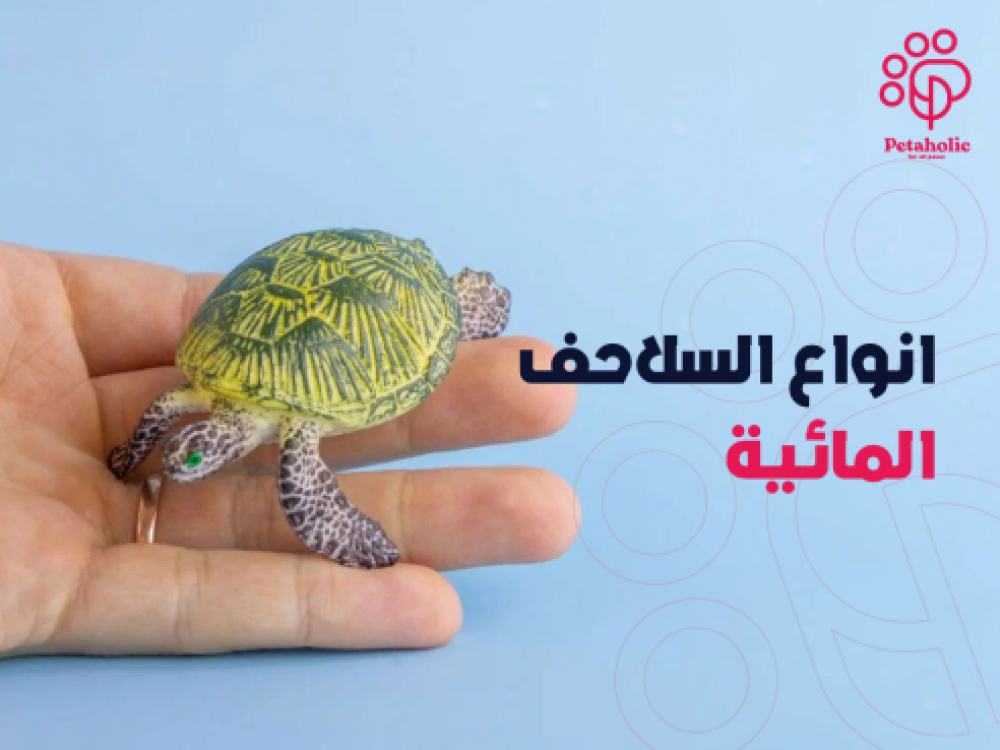
Did you know that the difference between aquatic turtles and land turtles is that aquatic turtles live most of the time in the water, while land turtles only live on land. Both types are great pets, but caring for them can be a time-consuming task. If you are thinking of buying a water turtle, you should first know the types of water turtles and how to care for them. At Petaholic, we also provide you with all pet supplies at the best prices.
The best types of water turtles that are suitable as pets
Most aquarium turtles typically live 20 to 30 years in homes with proper care. However, it is common for them to live beyond 50 years or more. Also, some turtles are more aggressive than others, while others may have unique care requirements. So you have to know the difference between them to provide proper care. The most common types of water turtles include:
Red-eared turtle
These turtles may be the best-selling aquatic turtles as pets because they tend to be more social. It can live up to 30 years and grow from 30 to 35 cm. This species grows quickly and needs large ponds. Depending on tank requirements and diet needs, red-eared turtles may be more affordable than other species.
The frilled turtle is one of the most popular types of aquatic turtles
Bobble tortoises are known for their pretty markings on their bodies and shells, but they don't enjoy being handled and can be shy. Therefore, interaction with them should be reduced to a minimum. However, this species is social with other tortoises if sufficient space is provided.
Map turtles
Map turtles are known for having a flipper that runs down their shell. These species may have a shorter lifespan than other species. Females reach a length of 30 cm, while males may grow to only 13 cm.
Cutters turtle
Cooters' tortoises, also known as red-chinned turtles, often grow to over 30 cm (30 cm) in length, and are sensitive to water quality and cleanliness. So it needs a good filter. It usually has yellow stripes running down its head, neck, and legs.
Masked Turtle
These tortoises are small, only growing from 8 to 13 cm, and may have less complex care than other tortoises. They are also not social with people, and should only be handled when needed. Hooded turtles may bite or emit a foul odor when they are frightened or stressed. This species also prefers shallow waters as it is not a great swimmer.
Mud turtles
Mud turtles tend to be shy and nocturnal, and spend most of their time at the bottom of tanks. Like masked turtles, they can also emit foul odors when frightened or stressed. They are also not very social with other turtles, and may become aggressive when living in groups.
If you want the best home for your house turtle, we recommend:
How to care for amphibious turtles and what should their environment include?
Most aquatic turtles do not like being held and may bite. This means that the new turtle will spend most of its time relaxing in its home. So their environment should be calm, with the right water temperature, lighting and filtration system. It is also essential for their health and well-being that their environment mimic their home in nature. Therefore, the aquarium that you provide for aquatic turtles must include the following:
- Plenty of space: First and foremost, you'll need a tank of sufficient size to allow your turtle to swim freely. Individual turtles need at least a 150-quart tank filled with filtered, non-chlorine water.
- Clean water: Because turtles eat and defecate in their water, they need a filter to prevent droppings from contaminating the tank. In addition, you will need to empty the tank and clean it with a bleach solution at least once a week.
- Infrared Heat Lamp and Heater: The aquarium will require a sunlamp and immersion heater to keep the water cooler at one end than the other. A platform at least partially out of the water is necessary, preferably with a slope to create a shallow basking area. Turtles need 10 to 12 hours of direct sunlight or incandescent lamp exposure per day for optimal health.
- Extras: You can put gravel or rocks in the bottom of the tank as long as it's big enough that your turtle won't try to eat it. Also, only one species of turtle should live in any tank, so don't try to keep more than one species in one tank. But most of them can coexist with some fish.
For the best care for your pets, we recommend from Petaholic:
What is a water turtle's favorite food?
All turtles are omnivores, which means they eat both plants and meat. Turtles can eat a wide variety of foods, although they can survive on a diet of prepared turtle pellets and frozen or dried fish food. Alternatively, you can feed your turtle some fresh food.
Healthy and safe foods for aquatic turtles include insects, such as caterpillars, crickets, and earthworms, small fish, and dark leafy greens, such as cabbage. Adult turtles only need to eat three to five times a week, and young turtles may need to eat up to twice a day. In addition, turtles need a calcium supplement in the form of a powder, to be sprinkled on their food two to three times a week.
Some of our favorite foods for amphibious turtles in Petaholic are:
What are the signs of tortoise disease?
Aquatic turtles can live up to 20 years. They should be active and alert, eat regularly, have a hard shell, clear skin free of pests, and clear eyes and nostrils. Since they are sensitive creatures and get sick easily, you should pay attention to the signs that they are not feeling well, which are as follows:
- hyperactivity or lethargy
- Secretions from the eyes, mouth, or nose
- Strange discoloration of the crust or skin
- sneeze
- Anorexia
- mouth enlargement
- abnormal stools
If you notice any of these symptoms, take your turtle to the vet as soon as possible. Calcium deficiency is relatively common in turtles, hence it is recommended to supplement their diets with calcium. Turtles also often carry salmonella, which can be transmitted to humans. Therefore, you should always wash your hands after handling turtles or any part of their home.
Some of the best vitamins we recommend to all Petaholic animals are:
- Beaphar B complex vitamins for all animals 50ml
At Petaholic, you will find all the essentials for your pets that guarantee you the best care for your little friends.
We also have:

